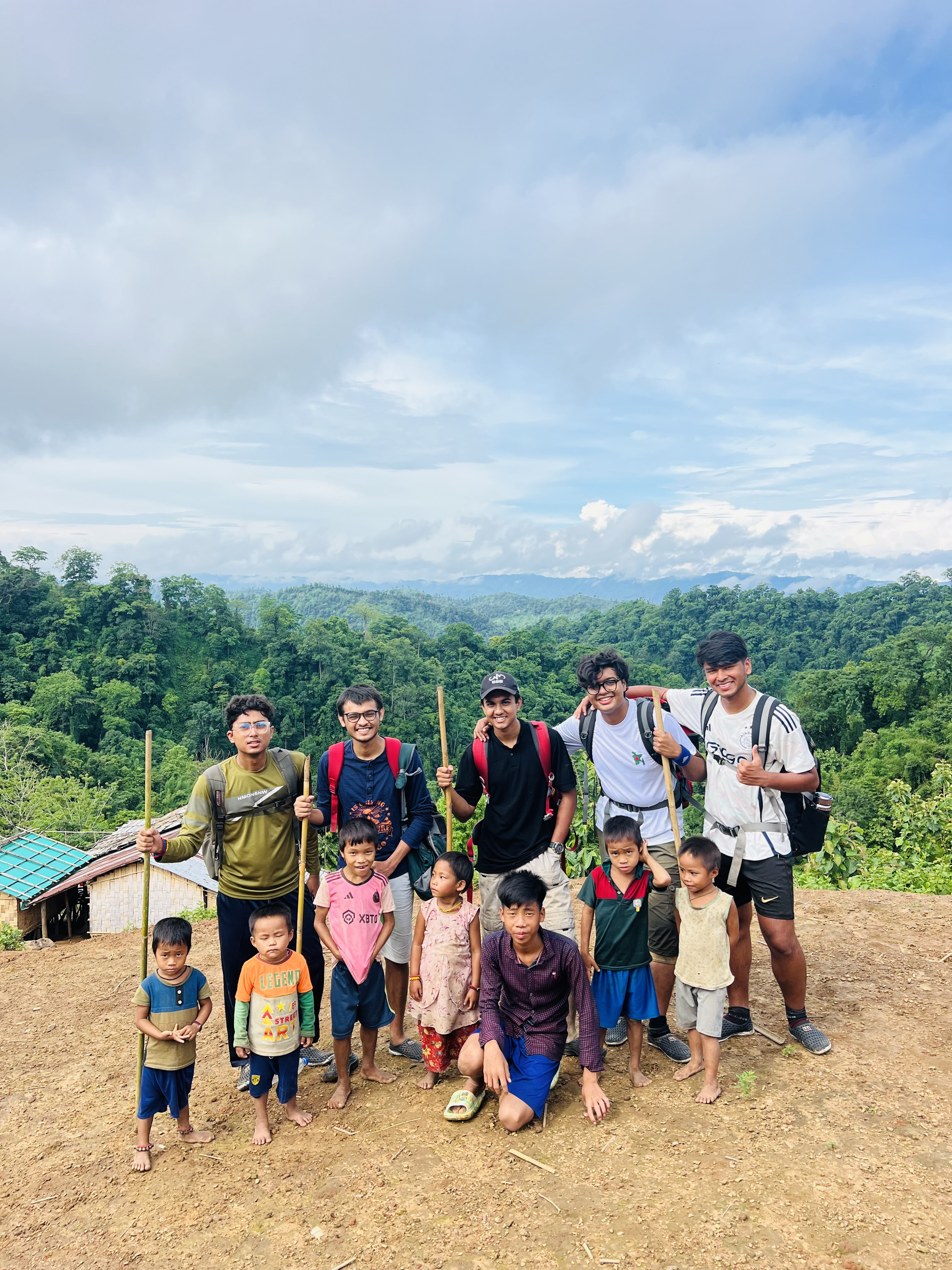Life in the Hills: My 5 Days in Wildness
 Swadhin Roy Sunny
Swadhin Roy Sunny
Recently, I had the opportunity to visit one of the most remote places in Bangladesh—Bandarban, a region tucked away in the Chittagong Hill Tracts. This journey, made in the company of friends, marked not only my first visit to the hills but also my first summit. The experience was nothing short of extraordinary. Given the remoteness and the unfamiliarity of the terrain, we decided to hire two local guides, a decision that proved wise as it added both safety and insight to our adventure. One aspect that caught us off guard was the requirement to submit our NID and birth certificates at the local army camp—a procedure that, while necessary, felt somewhat intimidating. Yet, those five days spent in the hills among unknown tribes were more than worth the initial apprehension.
The inhabitants of the Hill Tracts are primarily indigenous tribes, each with a distinct culture and way of life. The life of these tribal people is immensely fascinating, rooted deeply in their traditions and communal practices. Most of them follow Buddhism, while others adhere to Hinduism, Christianity, or Animism. Despite their diverse religious beliefs, elements of their ancient customs are still prevalent in their daily lives. The social structure of these tribes is often matriarchal, with women playing a pivotal role in the community. They are incredibly hardworking and are the main productive force in their societies. These women are skilled weavers, producing their clothing by hand, and they often engage in agriculture, growing the food their families consume. Their simple yet self-sufficient lifestyle is both admirable and humbling. Each tribe has its own language or dialect, distinctive dress, and unique rites and rituals. Hunting with bows and arrows is still a matter of pride for some, while others excel in creating beautiful handicrafts. The tribal people are generally peace-loving, honest, and hospitable, often greeting visitors with a warm smile and an open heart.
Our first night was spent in a remote village called Thanchi, where we stayed in a traditional "zoom ghor" (a stilt house used by the indigenous people). The experience was nothing short of magical. Our hut was perched beside a massive waterfall, and the sound of the cascading water was mesmerizing—it felt as though we were living inside one of those ambient nature playlists on Spotify, except this was real. The tribe in this village was reserved, engaging with us only when we initiated conversation, which added an air of mystery to the experience. During our two-night stay, we explored three nearby waterfalls, each more breathtaking than the last, their unspoiled beauty a testament to the untouched wilderness of the region.
The third night was perhaps the most memorable. We arrived in another village, where the tribe was notably more open and welcoming. The children entertained us with their playful antics, and in a heartwarming gesture of hospitality, the villagers offered us fresh mutton, free of charge. The taste of that meal, prepared with local spices and cooked over an open flame, is something I will never forget—it was a true feast. As we sat around the fire, the villagers shared stories of their lives, their traditions, and the challenges they face living in such a remote area. They spoke of their reliance on agriculture, hunting, and weaving as sources of income, and shared myths and legends that have been passed down through generations. The sense of community and their deep connection to the land were palpable in every word they spoke.
The fourth and final night of our journey was more subdued. We had become accustomed to the rhythm of life in the hills—early mornings, long treks, and nights spent under the stars. We slept soundly, our bodies tired but our spirits full. The simplicity of the meals, often consisting of rice, vegetables, and occasionally fish or meat, was a perfect reflection of the uncomplicated yet fulfilling life the tribal people lead.
As we left the hills behind, I couldn't help but feel a deep sense of gratitude for the experiences and the people we encountered. Life in the hills is not easy, but it is rich in ways that are difficult to describe. The simplicity, the connection to nature, and the strong sense of community are lessons that I will carry with me for a long time.
Subscribe to my newsletter
Read articles from Swadhin Roy Sunny directly inside your inbox. Subscribe to the newsletter, and don't miss out.
Written by

Swadhin Roy Sunny
Swadhin Roy Sunny
I am Swadhin Roy Sunny, a highly motivated STEM enthusiast, mental health advocate, and young researcher. As an international award-winning student, I am dedicated to making a positive impact through science and technology. I founded Monobadh, a non-profit organization focused on mental health awareness, and I am also a content creator on YouTube, sharing my passion for learning and discovery. As a young entrepreneur, I am committed to fostering innovation and growth. I enjoy writing about travel, life philosophy, and physics, and I am always eager to connect with like-minded individuals and professionals.